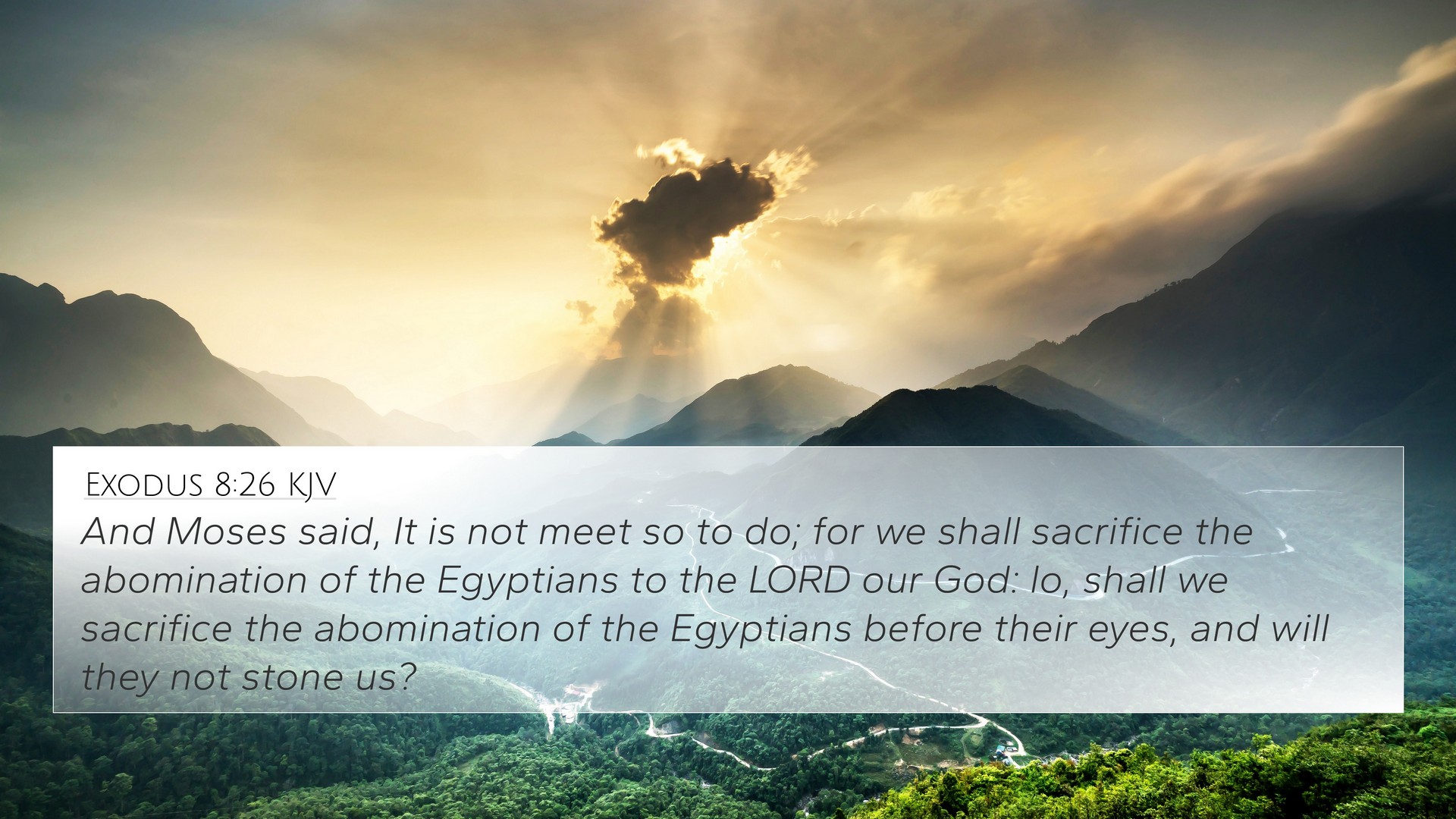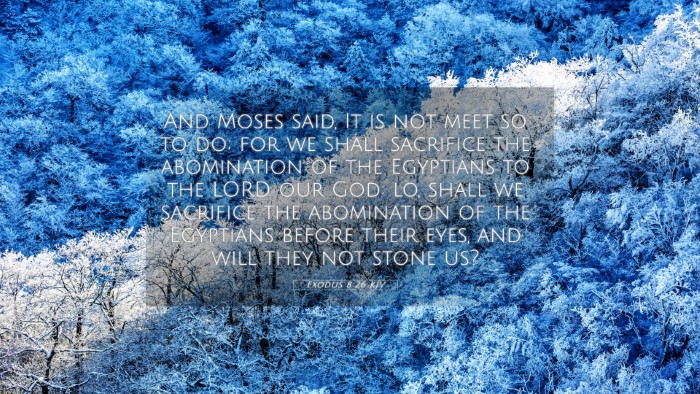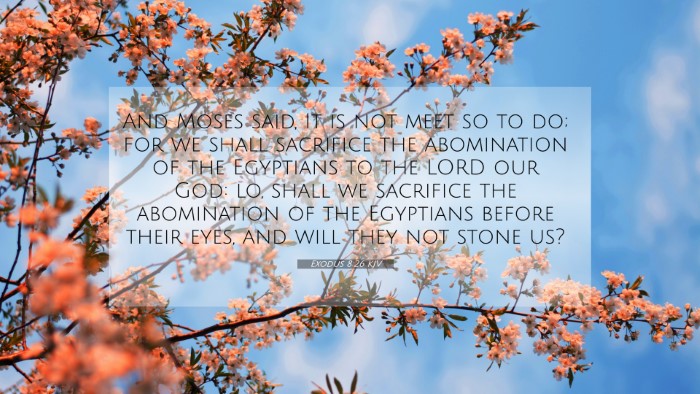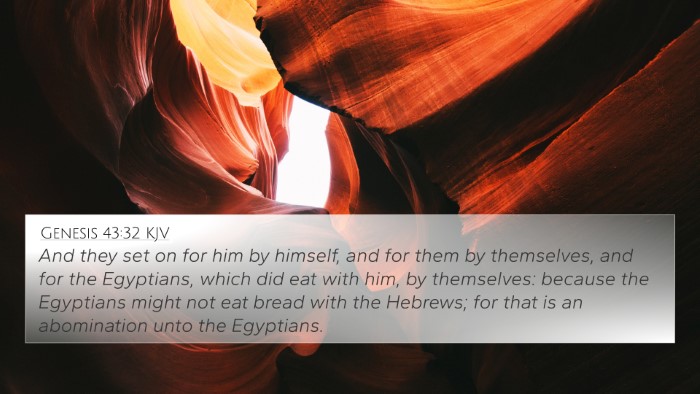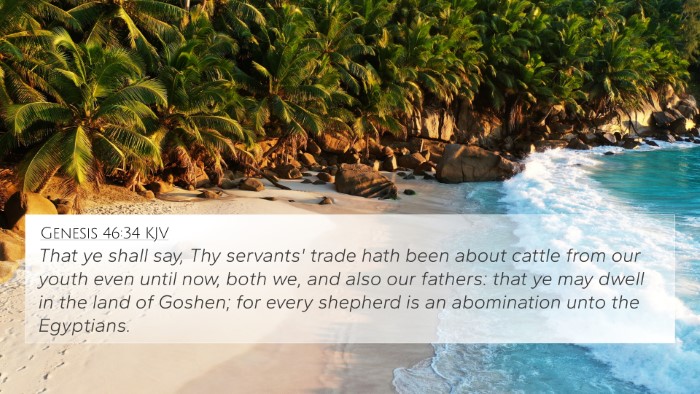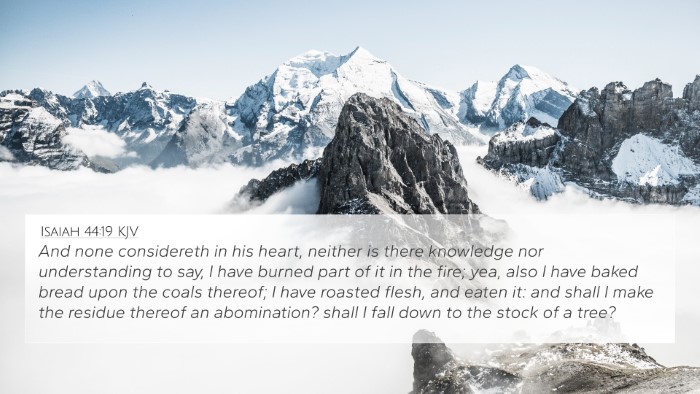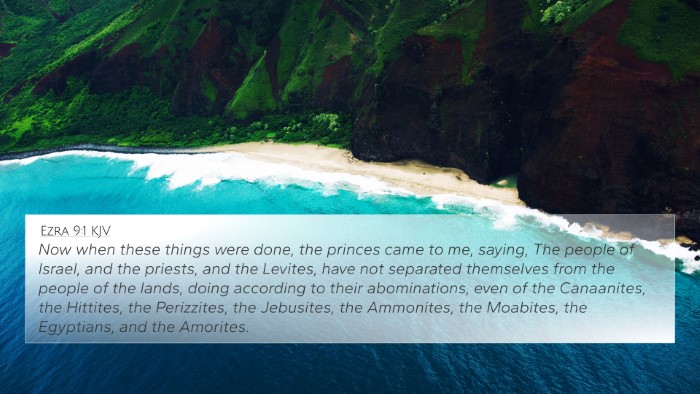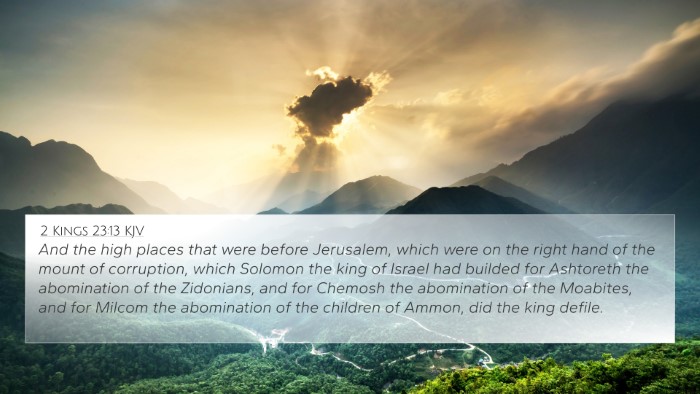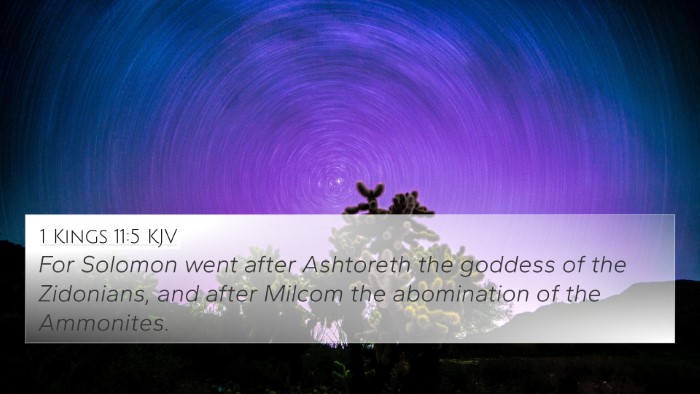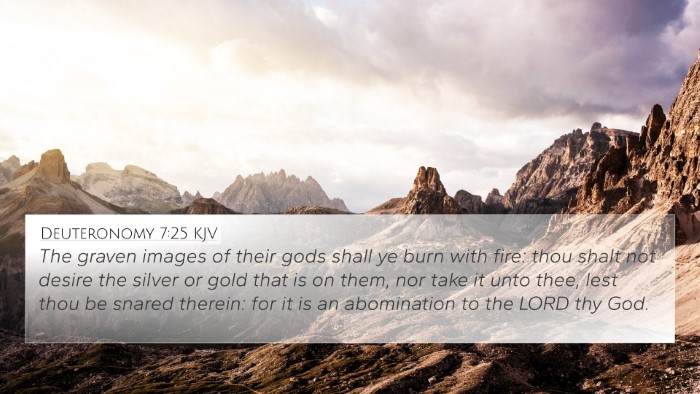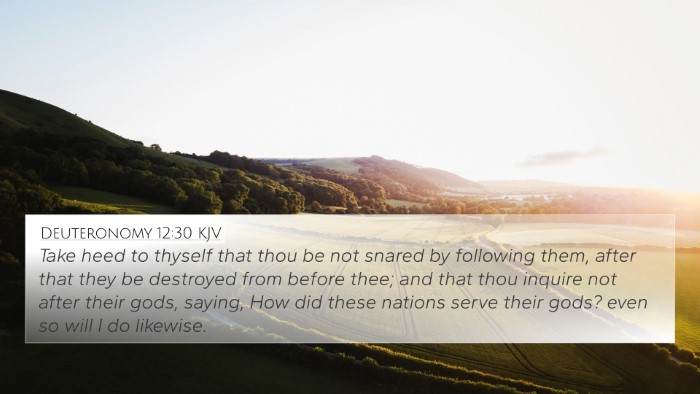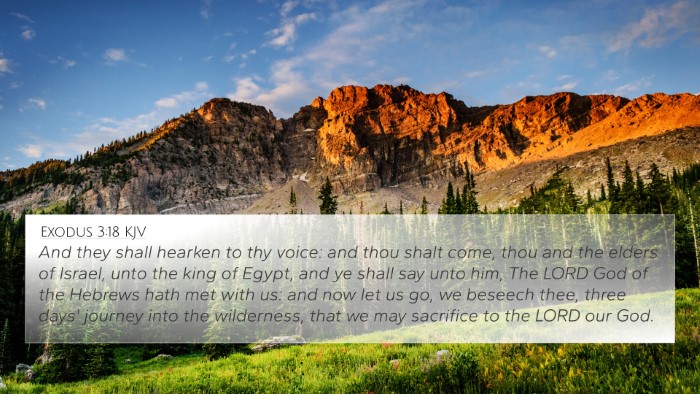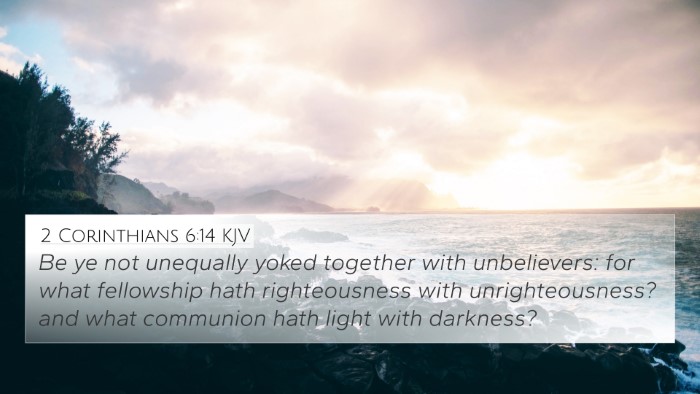Understanding Exodus 8:26
Exodus 8:26 states: "But Moses said, 'It is not right to do so, for we would be sacrificing the abomination of the Egyptians to the Lord our God. If we sacrifice the abomination of the Egyptians before their eyes, will they not stone us?'"
Summary of the Verse
This verse is part of the narrative in which God commands Moses to tell Pharaoh to let the Israelites go so they can worship Him in the wilderness. Here, Moses addresses the challenge of sacrificing animals that the Egyptians hold sacred. His response indicates a deep understanding of the cultural tensions and the sensitive nature of worship practices shared between the Israelites and Egyptians.
Contextual Analysis
The context of Exodus 8 involves the plagues that God sends upon Egypt as a way to compel Pharaoh to release the Israelites from slavery. This particular verse highlights a moment of negotiation and conflict. It shows Moses' role not only as a leader but also as a mediator who is conscious of the potential repercussions of his actions in the eyes of the Egyptians.
Commentary Insights
- Matthew Henry's Commentary:
Henry asserts that Moses demonstrated a profound awareness of the cultural significance that certain animals held for the Egyptians. He recognized that any act of sacrificial worship that included these animals would provoke a violent response from the Egyptians and would be seen as blasphemy. He emphasizes that Moses desired to avoid any provocation that could hinder the freedom of the Israelites.
- Albert Barnes' Commentary:
Barnes elaborates that the term "abomination" refers specifically to sacrificial animals that the Egyptians worshipped. In saying "it is not right," Moses understands that offering such animals could jeopardize the entire mission of liberating Israel. Barnes highlights that Moses's appeal to cultural respect is crucial for diplomatic relations between two nations.
- Adam Clarke's Commentary:
Clarke points out the cleverness of Moses in navigating the political landscape with Pharaoh. He comments on the importance of respect for Egypt's customs, suggesting that Moses's wisdom lies in avoiding unnecessary provocations that could lead to increased hostility from Pharaoh and confusion among the Israelites.
Bible Verse Cross-References
Exodus 8:26 relates to several other bible verses and themes, providing avenues for deeper understanding:
- Exodus 3:18: "And they will heed your voice; and you shall come, you and the elders of Israel, to the king of Egypt." - This verse shows the initial command to Moses regarding negotiations with Pharaoh.
- Exodus 7:16: "And you shall say to him, 'The Lord God of the Hebrews has sent me to you, saying, “Let My people go, that they may serve Me in the wilderness.”'" - This establishes God's purpose for the Israelites' liberation.
- Exodus 12:12: "For I will pass through the land of Egypt on that night, and will strike all the firstborn in the land of Egypt, both man and beast; and against all the gods of Egypt, I will execute judgment..." - It emphasizes the conflict between God's demands and Egyptian beliefs.
- John 4:22: "You worship what you do not know; we know what we worship, for salvation is of the Jews." - This connection underlines the theme of cultural distinctiveness in worship.
- 1 Corinthians 10:20: "Rather, that the things which the Gentiles sacrifice they sacrifice to demons and not to God..." - Highlights the spiritual conflict over what is considered holy or an abomination.
- Acts 7:22: "And Moses was learned in all the wisdom of the Egyptians, and was mighty in words and deeds." - This indicates Moses's familiarity with Egyptian culture, informing his actions.
- Romans 14:13: "Therefore let us not judge one another anymore, but rather resolve this, not to put a stumbling block or a cause to fall in our brother's way." - Mirroring the theme of being considerate about cultural practices in worship.
Thematic Bible Verse Connections
The message in Exodus 8:26 resonates with broader themes in the Bible such as:
- Cultural Sensitivity: Surrounded by diverse cultures, believers are encouraged to approach differing perspectives with respect and understanding.
- Worship:** The concept of what is sacred can vary significantly among people, affecting how worship is expressed.
- Diplomacy and Negotiation: In matters of faith and community, negotiating with sensitivity to others’ beliefs is often crucial in achieving peace.
Conclusion
Exodus 8:26 serves as a compelling illustration of Moses's leadership as he navigates the complex intertwining of faith, culture, and power. Understanding this passage through the lens of its cross-references and commentaries reveals deeper insights into the values of respect for cultural differences and the careful handling of sacred practices.
Further Study and Exploration
For those looking to delve deeper into the connections between Bible verses and the thematic implications within the scriptures, consider:
- Engaging in cross-referencing Bible studies to connect themes and narratives.
- Utilizing tools like a Bible concordance to explore related verses.
- Reflecting on how these connections inform current faith practices and inter-community relationships.
